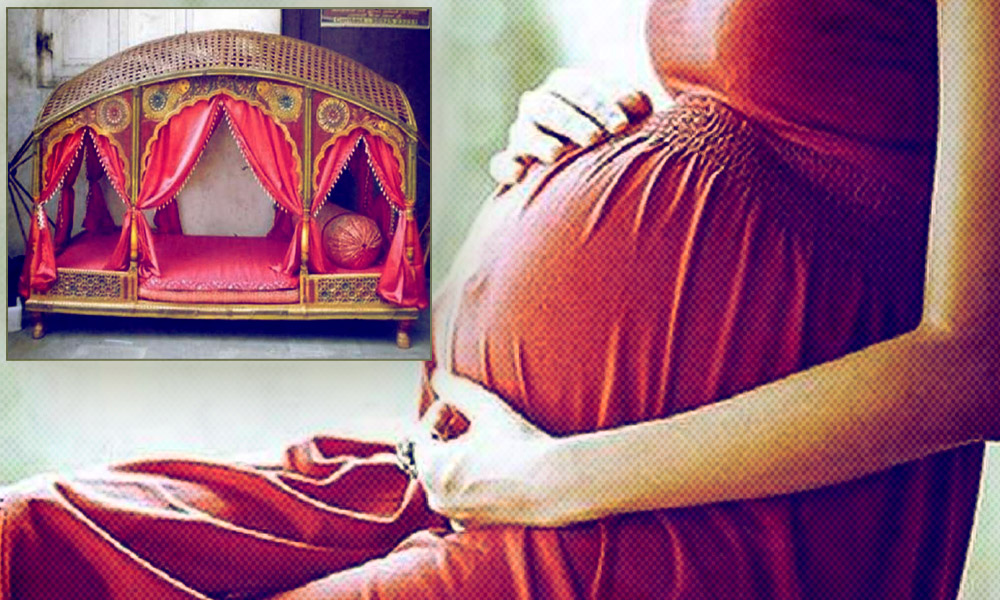
Image Credits: Jansatta (Representative)
Nainital To Offer 'Doli' To Ferry Pregnant Women In Rural Areas To Hospitals
Writer: Palak Agrawal
Palak a journalism graduate believes in simplifying the complicated and writing about the extraordinary lives of ordinary people. She calls herself a " hodophile" or in layman words- a person who loves to travel.
Uttarakhand, 5 Dec 2020 11:01 AM GMT | Updated 5 Dec 2020 11:16 AM GMT
Editor : Prateek Gautam |
A free soul who believes that journalism, apart from politics, should stand for social cause and the environment.
Creatives : Rajath
A free spirit who find meaning in life with the virtue of creativity and doing job par its excellence, animal lover and traveller by heart.
District Magistrate (DM) Savin Bansal allocated and released ₹10 lakh to the chief medical officer to make arrangements for the service. 500 dolis or palanquins would be put to service for rural areas to bring pregnant women to the nearest road head or hospital for delivery.
The Nainital district administration decided to make use of the available resources at hand and introduced 'doli' or palanquin service for the women residing in far-flung areas who have to walk miles to reach the nearest hospital for treatment, even during pregnancy.
There have been several news reports, in the past, highlighting the plight of rural women who were forced to being carried on a cot or large utensils to reach the nearest medical facility. Many lives have been lost due to poor road connectivity and lack of timely medical attention.
According to media reports, District Magistrate (DM) Savin Bansal allocated and released ₹10 lakh to the chief medical officer to make arrangements for the service. 500 dolis or palanquins would be put to service for rural areas to bring pregnant women to the nearest road head or hospital for delivery.
The service would be offered to villages located at a distance of more than one km from the nearest road and would be particularly effective for the remote areas located in hill development blocks of Dhari, Ramgarh, Okhalkanda, Betalghat and Bhimtal.
A number of measures have been put in place for its smooth functioning. The hospitals would be equipped monetarily to promote the idea. There will always be some money at the hospital and ₹2,000 will be given to anyone who plays an instrumental part in bringing the woman to the hospital, Bansal said.
Apart from ensuring timely treatment in the short-term, this step is being seen to alleviate the plight of women in need of medical care in rural areas and also to reduce the mother-child mortality rate in the long run.
 All section
All section














